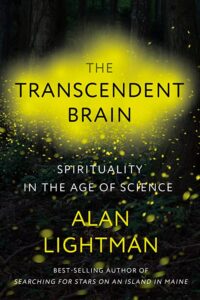A scientist on spiritualism
Alan Lightman, professor of the practice of the humanities, connects the world of particles with the world of human experience

Staring at the stars, falling in love, or listening to music, humans sometimes feel a connection with things larger than ourselves. But these awe-inspiring experiences are not easily understood by science, which holds that all things can be explained in terms of atoms and molecules.
“I’m a materialist. Not in the sense of seeking happiness in cars and nice clothes, but in the literal sense of the word: the belief that everything is made out of atoms and molecules, and nothing more,” Alan Lightman writes. “Yet, I have transcendent experiences.”
In his latest book from Pantheon, The Transcendent Brain: Spirituality in the Age of Science, the novelist and physicist draws on intellectual history and conversations with contemporary scientists, philosophers, and psychologists to interrogate our place between these worlds. Can materialism explain our appreciation of beauty? Or our feelings of connection to nature and to other people? Is there a physical basis for consciousness, the most slippery of all scientific problems?
Lightman weaves his investigations together to propose what he calls “spiritual materialism” — the belief that we can embrace spiritual experiences without letting go of our scientific worldview.